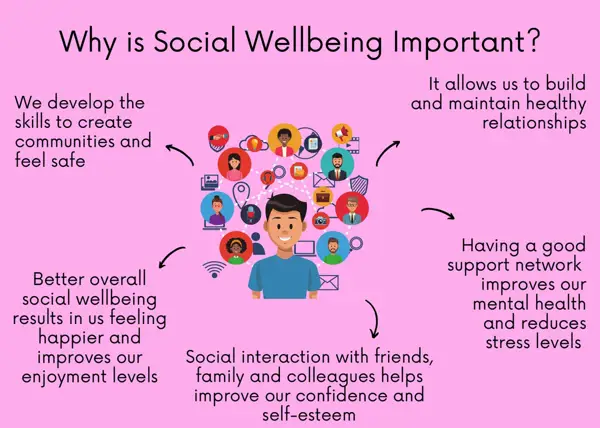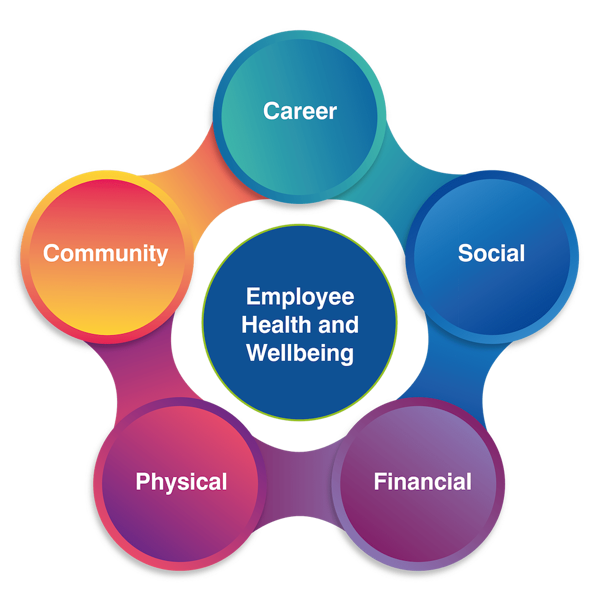Table of Contents:
- Introduction
- Benefits of Implementing a Mental Health and Wellbeing Policy
- Creating a Healthy Work Environment
- Supporting Employees' Mental Health
- Preventing Burnout
- Promoting Work-Life Balance
- Resources for Implementing a Mental Health and Wellbeing Policy
Introduction
Employee mental health and wellbeing have become increasingly important topics in the workplace. Organizations are recognizing the need to prioritize the mental health of their employees to create a positive and productive work environment.
Benefits of Implementing a Mental Health and Wellbeing Policy
Implementing a mental health and wellbeing policy can have numerous benefits for both employees and employers. It can lead to increased productivity, improved morale, reduced absenteeism, and a more inclusive and supportive work culture.
Implementing a mental health and wellbeing policy in the workplace can have a range of positive impacts on employees and the organization as a whole.
Improved Employee Wellbeing
By providing support and resources for mental health, employees are more likely to feel valued and cared for, leading to improved overall wellbeing and job satisfaction.
Reduced Stress and Burnout
A clear mental health policy can help to reduce stress and prevent burnout by promoting work-life balance and offering resources for coping with stress.
Increased Productivity
Employees who feel supported in their mental health are more likely to be productive and engaged in their work, leading to higher levels of performance and output.
Enhanced Employee Morale
Creating a culture of support and understanding around mental health can improve morale and create a positive work environment where employees feel safe and comfortable.
Decreased Absenteeism and Turnover
By promoting mental health and wellbeing, organizations can reduce absenteeism due to mental health issues and decrease turnover rates, ultimately saving on recruitment and training costs.
Overall, implementing a mental health and wellbeing policy is a proactive step towards creating a healthy and supportive workplace for all employees.

Creating a Healthy Work Environment
A mental health and wellbeing policy can help create a healthy work environment by promoting open communication, providing resources for mental health support, and fostering a culture of empathy and understanding.
A healthy work environment is crucial for promoting employee mental health and wellbeing. By implementing the following policies and practices, we aim to create a supportive and positive workplace for all our employees:
- Encouraging open communication and providing a safe space for employees to express their thoughts and feelings
- Promoting work-life balance by offering flexible working hours and remote work options
- Providing resources and support for mental health issues, including access to counseling services and mental health education programs
- Promoting physical wellness through initiatives such as exercise programs, healthy eating options, and ergonomic workspaces
- Fostering a culture of respect, diversity, and inclusion to ensure all employees feel valued and supported
By prioritizing the mental health and wellbeing of our employees, we not only create a positive work environment, but also improve overall productivity and employee satisfaction. Together, we can build a healthier and happier workplace for all.

Supporting Employees' Mental Health
By implementing a mental health and wellbeing policy, employers can demonstrate their commitment to supporting their employees' mental health and wellbeing. This can lead to increased employee satisfaction and loyalty.
Preventing Burnout
A mental health and wellbeing policy can help prevent burnout by promoting work-life balance, encouraging employees to take breaks and time off when needed, and providing access to mental health resources and support.
At our company, we understand the importance of prioritizing the mental health and wellbeing of our employees. One of the key ways we aim to support our employees is by preventing burnout, a common issue that can have detrimental effects on mental health.
Our policy includes regular check-ins with employees to assess their workload and stress levels, providing resources for stress management and mental health support, promoting work-life balance, and offering flexibility in work hours and schedules.
We believe that by proactively addressing burnout and supporting the mental health of our employees, we can create a healthier and more productive work environment for everyone.

Promoting Work-Life Balance
Work-life balance is essential for maintaining good mental health. A mental health and wellbeing policy can promote work-life balance by encouraging flexible work schedules, remote work options, and promoting self-care practices.
Creating a work-life balance is crucial for maintaining good mental health and overall wellbeing. In our organization, we recognize the importance of promoting work-life balance for our employees. Our mental health and wellbeing policy includes provisions to support employees in achieving a healthy balance between work and personal life.
We encourage employees to take breaks throughout the day, utilize flexible work arrangements, and prioritize self-care activities. Additionally, we provide resources such as counseling services, wellness programs, and educational workshops to support mental health and wellbeing in the workplace.
By prioritizing work-life balance in our mental health and wellbeing policy, we aim to create a positive and supportive work environment where employees can thrive both professionally and personally.

Resources for Implementing a Mental Health and Wellbeing Policy
There are many resources available to help organizations implement a mental health and wellbeing policy, including training programs, mental health awareness campaigns, and access to mental health professionals.
Creating a mental health and wellbeing policy in the workplace is crucial for ensuring the overall well-being of employees. To effectively implement this policy, here are some resources that can help:
1. Employee Assistance Program (EAP)
An EAP is a confidential program that provides employees with access to counseling services and resources to help them address personal and work-related issues. It can be a valuable resource for employees struggling with mental health challenges.
2. Training and Education
Providing employees and managers with training on mental health awareness and how to support colleagues experiencing mental health issues is essential. There are many online resources and training programs available that can help educate staff on mental health best practices.
3. Mental Health First Aid
Mental Health First Aid is a training program that teaches participants how to recognize the signs of mental health issues and provide initial support. Having employees trained in Mental Health First Aid can create a supportive environment for those in need.
4. Access to Mental Health Resources
Make sure employees have access to resources such as therapy services, support groups, and crisis hotlines. Providing easy access to mental health resources can help employees seeking help for their mental health challenges.
5. Regular Communication
Communication is key in promoting mental health and wellbeing in the workplace. Regularly sharing information on mental health resources, events, and support available can help create a culture that values mental health.
By utilizing these resources, organizations can create a supportive and inclusive environment that prioritizes employee mental health and wellbeing.

Key Takeaways:
- Implementing a mental health and wellbeing policy can benefit both employees and employers.
- A healthy work environment promotes productivity, morale, and employee satisfaction.
- Supporting employees' mental health can lead to reduced absenteeism and increased loyalty.
- Preventing burnout is essential for maintaining a productive and engaged workforce.
- Promoting work-life balance can improve employee wellbeing and overall job satisfaction.
- Resources are available to help organizations implement a mental health and wellbeing policy.
Frequently Asked Questions:
Q: How can employers support employees' mental health?
A: Employers can support policy mental health early years a mental health and wellbeing policy, promoting open communication, providing access to mental health resources, and offering training on mental health awareness.
Q: What are the benefits of promoting work-life balance in the workplace?
A: Promoting work-life balance can lead to increased employee satisfaction, improved productivity, reduced burnout, and a more positive work culture.



Recent Comments